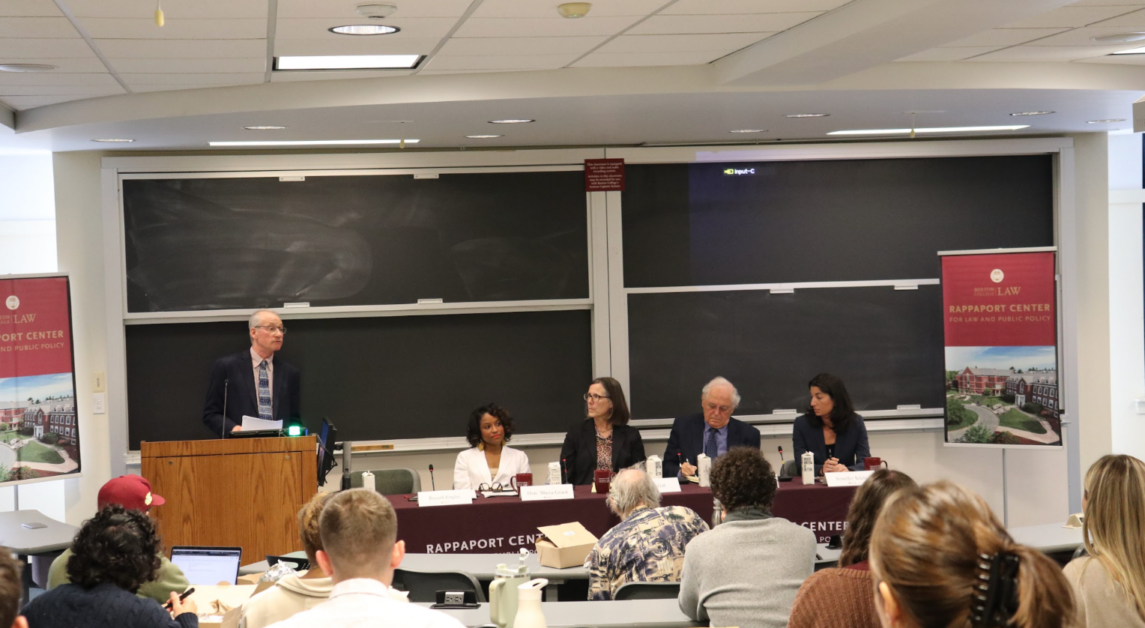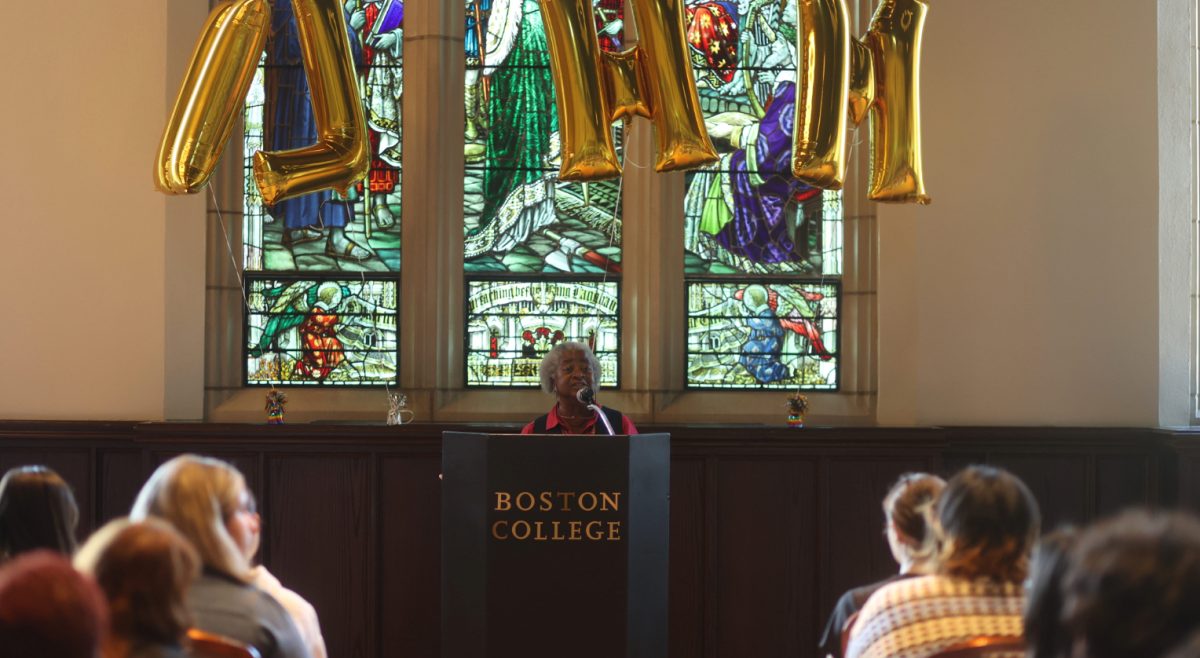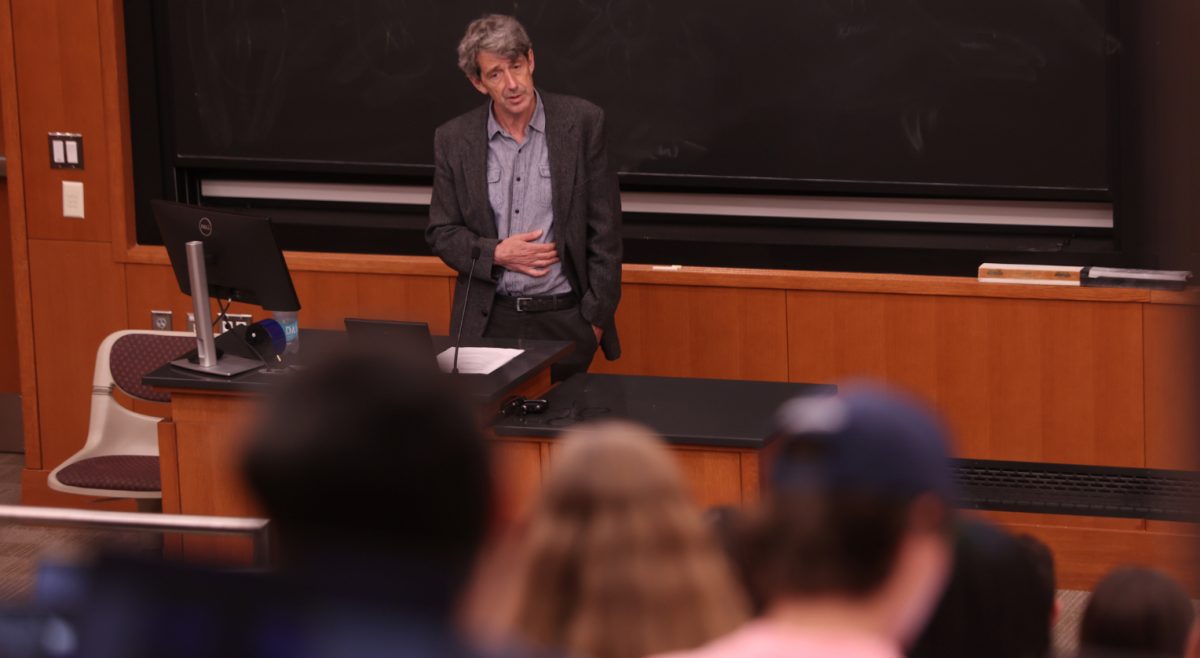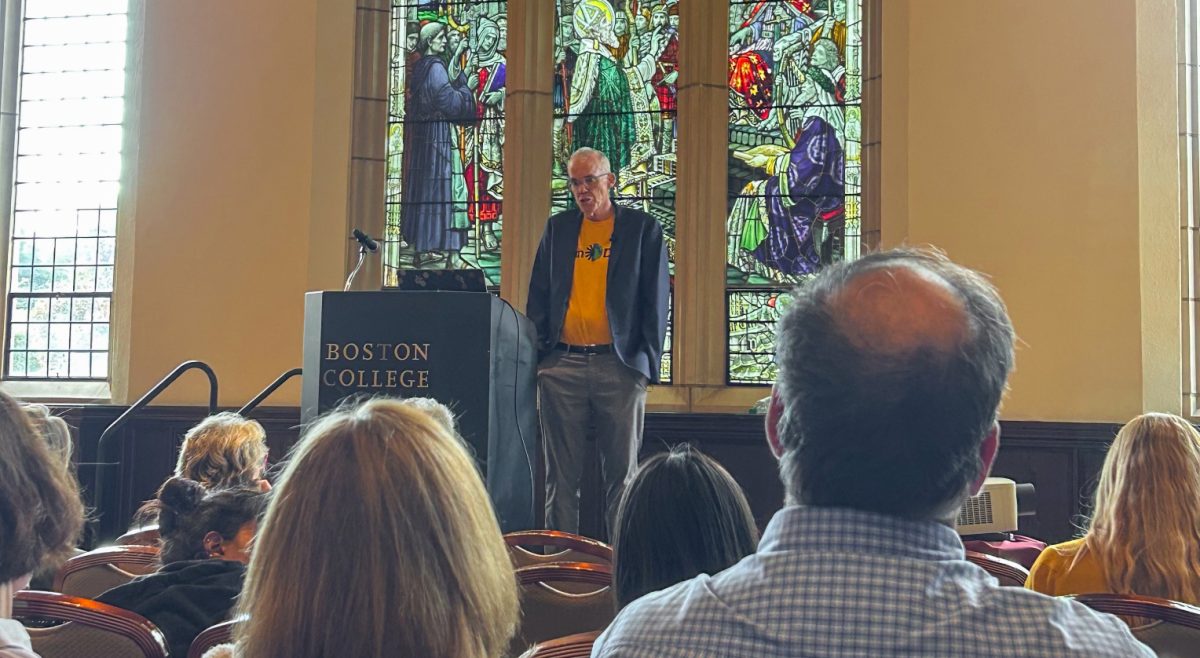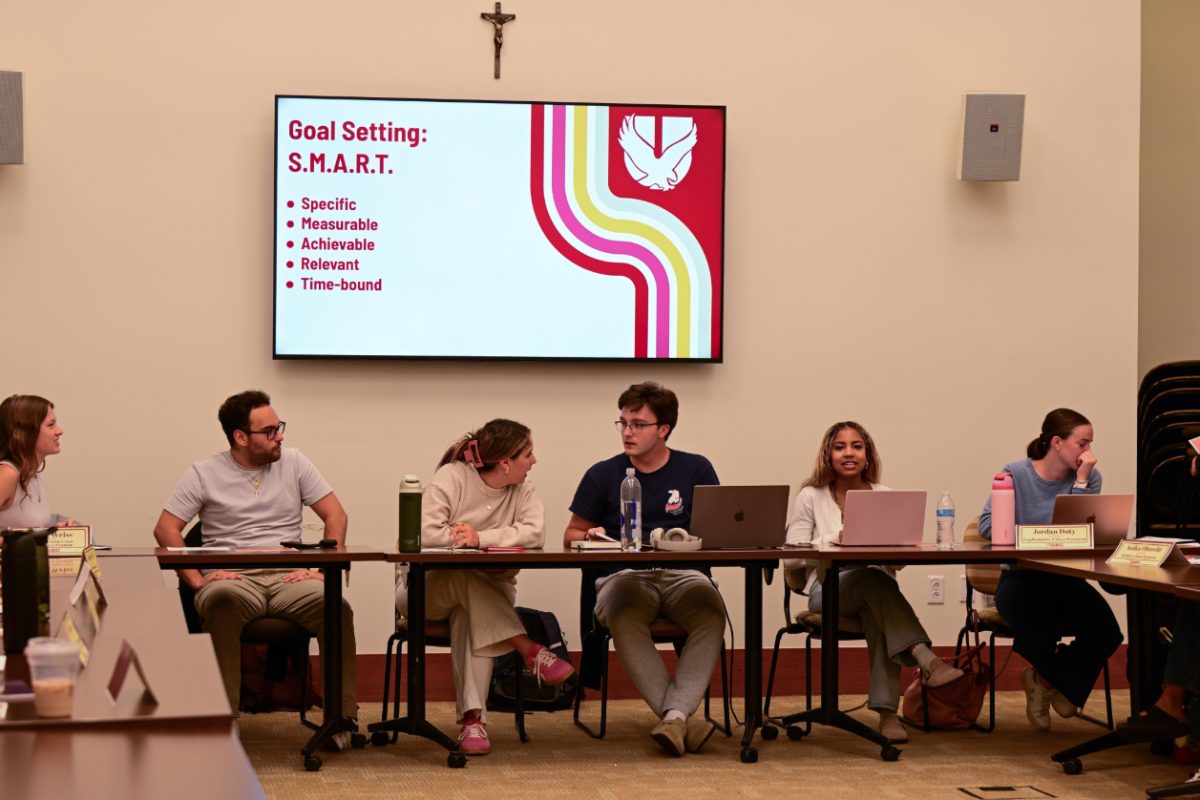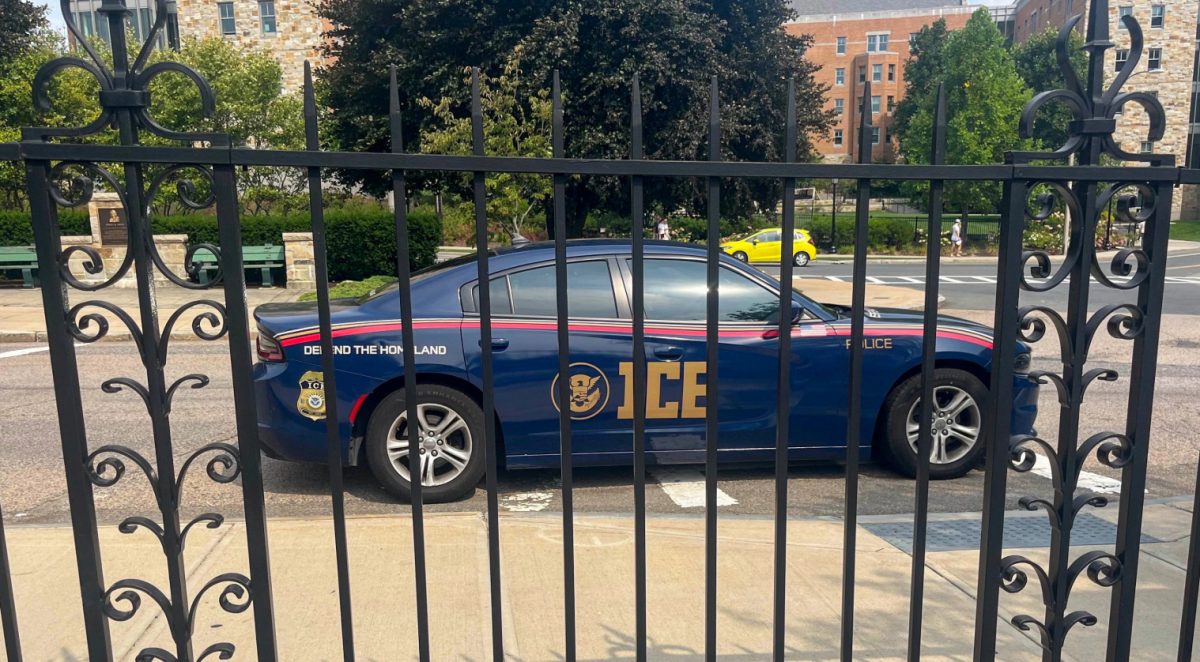Less than one percent of detained immigrants in deportation cases will have success in the U.S. courts, according to Jennifer Klein, director of the Immigration Impact Unit.
“Seventy percent of detained individuals [in deportation cases] nationally are unrepresented,” Klein said. “Only 2 percent of immigrants without counsel were able to win their case. So out of that 70 percent, only 2 percent are going to have success in court.”
Klein spoke at a panel on Sept. 24, titled “Civil Gideon: Re-Examining Equal Access to Justice in Family Law, Housing, Immigration, and Juvenile Law.” Sponsored by Boston College Law School’s Rappaport Center for Law and Public Policy, the panel featured former and sitting judges, law professors, and legal experts.
“Civil Gideon,” also known as “civil right to counsel,” refers to the idea that people who are unable to afford lawyers in legal matters involving basic human needs—including food, shelter, safety, and child custody—should have a lawyer provided to them free of charge, according to the American Bar Association. While the practice is common practice in criminal cases, it is not in civil cases.
“We live in a justice-by-geography world, and it’s really sad that you’ve got to look from state to state to see whether, by the state constitution, rule, or statute, basic fundamental rights and needs are being met,” said Jay Blitzman, former first justice of the Middlesex County Juvenile Court.
Nevertheless, progress is being made—some cities have added caveats for situations involving housing law. For instance, if a tenant has a child, they are entitled to legal representation, according to Shera Grant, district court judge of the Civil Division of Jefferson County Alabama District Court.
Klein said she witnessed growth in the area of immigration as well. New York has been a leader in the movement for representation, she said, while Massachusetts has fallen behind, with no funding for legal counsel in immigration proceedings.
“The federal government actually, by statute, prohibits federal funding of representation in immigration court,” Klein said. “So right now, it is left entirely to the states and local jurisdictions. I think it’s really hard for states to understand why they should be fitting the bill for a federal proceeding. Immigration proceedings are federal.”
Blitzman suggested the government should examine these issues systemically. He said these issues should be regarded as the intersection of class and race, noting that de facto segregation persist as a result of the government’s marginalizing race-conscious policies.
“The average lifespan of people living in Roxbury, according to a 2016 Boston University health study, is 59 years of age,” Blitzman said. “That’s contrasted by an average lifespan of 92 in the Back Bay. That’s an obscenity. We’re talking about several miles, and that type of geographical segregation drives educational segregation.”
Roxbury, Mass., is a historically Black community with a significant Hispanic population and a predominantly low-income population, while the Back Bay, primarily white, is one of Boston’s wealthiest neighborhoods, Blitzman said.
“We need to solve the systemic problems, and if we solve the systemic problems, there’s actually no reason why, as a society, we couldn’t afford attorneys for all of our cases and all of our situations, because we wouldn’t need as many attorneys,” Klein added to Blitzman’s point.
Klein emphasized the need for civil Gideon and the right to publicly funded attorney representation for all.
“We do need someone standing up in the courtroom and advocating for people’s rights,” Klein said. “So, we need to keep pushing for that universal Gideon, and, at the same time, figuring out how to solve the problem that leads to the need for so many lawyers in court.”

